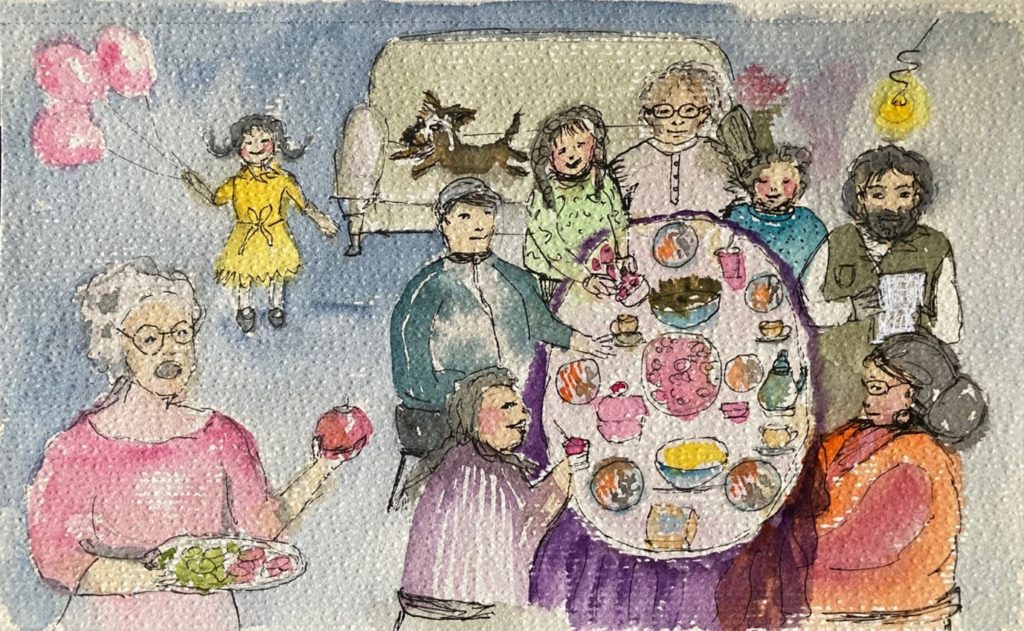Posted by fgcstudy
8 May 2024Parents and extended family members have the right to guide their children’s lives. And children have the right to express views on matters that affect them, and have these views considered properly (United Nations Convention on the Rights of the Child, Articles 5 and 12(1)). The right to respect for private and family life under article 8 of the European Convention on Human Rights includes the right to be involved in decisions about one’s children (R v UK [1988] 2 FLR 445 (ECtHR)).
Increasingly, the need is being recognised for social work practice to move away from a top-down ‘expert’ culture towards one that is relational and seeks the views and involvement of individuals and communities, through what might be identified as a process of co-production (Ingram and Smith 2018). Families want professionals to understand their realities and recognise the challenges they face and how families manage and negotiate their day-to-day reality, esp… where families have multiple and complex needs. With a deeper understanding of how services are understood and responded to by families… professionals can support change that enables better outcomes for children (Morris 2013).
FGC is a way to involve the family and their social support networks in caring for children and youth in partnership with professionals. Ethically, family engagement is a way to uphold both child and family rights. This approach orients child welfare to fulfil its mission to protect children while supporting parents, especially those who are facing challenging circumstances or life situations (Pennell, Burford, Connolly & Morris 2011).
In 2022, seventy-nine per cent (n = 167) of local authorities in the UK provided FGCs to families, and 14 per cent (n = 29) did not (Wood et al. 2024). The Leeds Family Valued model offered an FGC as an alternative to the ICPC within their wider restorative approach to social work. Based on an evaluation of the model (Ferguson, Morris, Munton, Sen 2017), reported that of all families who consented to uptake FGCs –
a. 100% felt involved in the process
b. 100% felt their values had been respected
c. 99% felt their FGC had helped address their problems
d. 91% felt the services they were offered were appropriate to their needs.

There is a growing body of evidence that suggests that Family Group Conferences are associated with “high levels of participant satisfaction; bringing family members closer together and strengthening positive family ties; keeping children safe through the delivery of a plan which protect and safeguard children and parents/carers; improved partnership working between families and social work services; achieving more timely permanency and existing out of home care more rapidly” (as cited in Mitchell 2019: Pennell & Burford 2000; Merkel-Holguin 2003; Holland, Scourfield, O’Neill, & Pithouse 2005; Marsh 2013; Metze, Kwekkeboom, & Abma 2015: see also Mitchell 2018 and Munro 2017).
Studying the very first pilots of FGCs in the UK, Marsh & Crow (1998) found that professionals were generally very impressed by the family plans. They acknowledged their creativity and often stated that social care professionals could not have formulated such plans themselves. A significant finding was that 67% of social workers thought that plans were likely to result in better protection for the child than would otherwise have been possible. Half of social workers participating in the pilots stated that family decision making helped them improve their partnership practice and think more positively about families.
In their 2023 report, Foundations What Works for Children for Children and Families found the use of Family Group Conference at pre-proceedings stage can keep children with their families and out of care. This is the largest randomised controlled trials carried out on the use of family group conferencing (FGCs) at pre-proceedings stage in England. It found that 12 months after the Family Group Conference, children were less likely to go to court, less likely to go into care, and to spend less time in care when they became looked after. They concluded that FGCs can save public money, with a saving of £960 per child referred to in the first year. They estimated that if Family Group Conferences were to be rolled out across England, 2,293 fewer children would go into care in a 12-month period, which would save over £150 million within two years.
Based on this evidence, our study is exploring whether FGC can be a way of working with families where there are safeguarding concerns. In theory, families are the experts in knowing their own lives. FGC could offer a helpful way of accessing that knowledge and enabling families to take the lead on developing a plan to improve child safety.